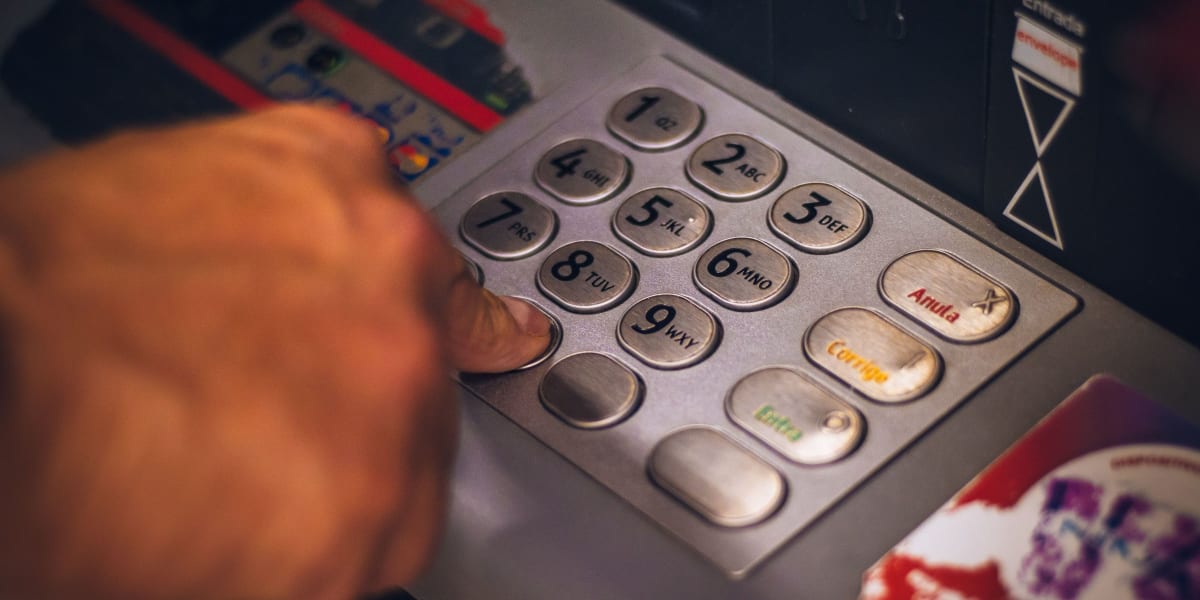What Are Best Business Bank Accounts for LLCs?

Are you an LLC looking for the best business checking account for your business? With so many banks and financial institutions offering different business checking accounts, it can be challenging to determine which is right for you. The best business bank account for LLCs depends on the business’s specific needs and financial goals.
As a beginner, when looking for a business checking account, LLCs should consider services such as free transaction limits, low maintenance fees, technical support, and available banking locations. Businesses may also want to look for specific features such as accepting payments, offering employee reimbursements, or utilizing payroll services.
Before suggesting your banks, let’s tell you why you need an account and what type of account you would need.
What types of accounts do LLCs need?

An LLC is a business owned by two or more people who share profits and losses. An LLC is flexible, versatile, and appealing, thanks to the tax benefits.
There are a few different types of accounts an LLC needs:
Businesses registering as a Limited Liability Company (LLC) need to understand the different types of accounts to consider when setting up their business.
By registering as an LLC, you can allow your business to operate under its own legal identity. When registering as an LLC, you become a “member” responsible for the company’s management.
You must apply for federal and state government accounts to operate your business as an LLC. You also need to open a bank account for your business. By opening business bank accounts, you can make it easier to manage your finances.
The accounts you need for your LLC will depend on the business you plan to run. When registering your business as an LLC, you must apply for accounts with the state and federal governments. You will need to open a business checking account to manage your finances.
Read also: Small Business Ideas for Beginners to Run Their Own Business
A checking account is one of the first accounts you will need to open. A checking account will allow you to deposit funds, pay bills, and carry out other financial transactions. You will also need to open a business savings account. This will help you to save money for future business expenditures.
You will also need to consider opening a line of credit or a business credit card. A line of credit can help you to manage your cash flow more efficiently, while a business card can help your business to access funds faster.
You must also open a business tax account when registering your LLC with the federal government. A business tax account will allow you to pay taxes to the IRS.
When registering your LLC, you must open accounts for all your business accounts. By opening the right business accounts, you can make it easier to manage your finances. Opening the right accounts can help you to save money on your taxes.
LLCs are required in most states to have a business bank account to operate legally.

An LLC, or limited liability company, is a legal business structure recognized by many states. To legally operate an LLC, most states require that it have a dedicated business bank account. This is done to ensure that the business is separate from the individual assets of the owners of the LLC. A separate business bank account also helps protect the LLC from potential legal issues, as the business’s finances are kept separate from the owners’ finances.
Setting up a business bank account for an LLC is relatively straightforward. Most banks will require the LLC to provide proof of its legal existence, such as a copy of the Articles of Organization or Certificate of Formation. Once the bank is satisfied that the LLC is legally formed, they will open the account, and the LLC can make deposits and withdrawals as needed.
It is important to remember that LLCs typically need to maintain a minimum balance in the business bank account to remain in good standing with the bank.
Business bank accounts for LLCs are an important part of protecting the legal and financial interests of the business. It is important to remember that the rules and regulations for setting up a business bank account for an LLC may vary by state. Therefore, it is crucial to research and ensure that the LLC complies with all the applicable laws and regulations in the state before opening the business bank account.
Read also: The Latest Google Doc Features You Didn’t Know Existed
Many banks offer LLCs tailored business accounts and special features to meet their unique needs.
When starting your own business, one of the first steps is selecting the appropriate type of bank account. While many people opt for traditional checking accounts, LLCs and other limited liability corporations (LLCs) have unique banking needs.
Many banks offer LLCs tailored business accounts that feature special features to meet the needs of these business owners.
Unlike traditional corporations, LLCs don’t have shareholders. This means that they do not need to be taxed directly. Instead, income is passed to the LLC member’s tax returns.
However, LLCs are considered “pass-through” entities for tax purposes. This means they must pay self-employment taxes and cannot deduct business expenses.
LLCs are also required to keep detailed records of their income and expenses. These records are kept separate from the members’ personal files.
Because of these complex tax requirements, many LLCs choose to set up business bank accounts.
In addition to private LLCs, public LLCs also have the option to open business bank accounts. These accounts are like private LLC business accounts, but public LLCs may run into some tax issues, including double taxation.
LLCs may also need to consider credit card accounts, merchant accounts, and payroll accounts.
When setting up a business bank account for an LLC, there are a few additional details to consider. Most notably, LLCs may need to consider credit card accounts, merchant accounts, and payroll accounts. Credit card accounts are necessary for businesses that accept credit card payments. Merchant accounts are necessary for businesses that accept payments via a payment gateway. Payroll accounts are necessary for businesses that process payroll for their employees.
In addition to having the necessary accounts, LLCs may need to consider additional features and features related to their accounts. For example, LLCs may want to consider features such as fraud protection, real-time payment processing, and automatic deposits. The type of business and its financial needs will determine the best features and accounts to set up.
Finally, LLCs should consider the cost of setting up and maintaining their business banking accounts. Fees vary between banks, so comparing the options is important to find the best fit.
All LLCs should ensure that their accounts comply with local and state regulations to remain in good standing.
All LLCs should ensure their accounts comply with local and state regulations to remain in good standing.
While s LLC, it is important that your accounts are compliant with local and state regulations. Some states, such as Nevada, do not require LLCs to hold a bank account, but others do. In these states, you will need to open a bank account for your LLC if it meets specific criteria.
LLC banks usually require that your LLC has at least one resident member. Some states, such as Texas, also require that all LLC members share residency, although they do not require that all members live in the same state.
When opening a bank account for your LLC, you must provide the bank with information about your business. This information includes your business name, address, and registered agent information. You also will need to provide information about the members of your LLC.
LLCs usually must pay a monthly maintenance fee, which will vary depending on your banking institution.
If you or your LLC fails to open a bank account, your LLC may still be able to take advantage of certain banking services. However, you will be limited to essential services, such as writing checks and depositing money into your bank account.
Read also: How to Name a Business and Make the Best First Impression?
What banks are best for LLCs?

Starting a new business requires you to be incredibly selective when selecting your banking partner. After all, any banking relationship you forge early on can be the foundation of your business for years to come.
This can cause added stress for anyone starting a new business. Fortunately, knowing what to look for is easier before jumping into any banking relationship.
Here’s a breakdown of what banks are best for LLCs:
The importance of choosing the right business bank account for your LLC.
Choosing the right business bank account for your LLC is essential for managing your business finances efficiently. It is vital to have a bank account tailored to meet your LLC’s needs. This is especially true if your LLC has multiple owners, as you need to ensure that all owners have equal access to funds and can make decisions on how to manage your finances. Furthermore, having the right bank account can help you reduce the paperwork and time associated with managing your finances.
When selecting a business bank account for your LLC, you should consider the important features of your business. For example, look for a bank account that offers online banking services and mobile banking apps so you can easily manage your finances from any location. Make sure the bank account has low fees and can meet the needs of your LLC. Additionally, you might want to look for a bank account that offers additional services, such as merchant services and payroll services, to help you manage your finances.
Finally, you should also consider the customer service and support offered by the bank. Having a bank that can provide reliable customer service is crucial, as this can be valuable when you need assistance with your finances. Furthermore, customer service representatives should be knowledgeable and able to guide you in managing your finances.
Additionally, ensure the bank is FDIC-insured so your funds are protected in case of a bank failure. Taking the time to select the right business bank account for your LLC carefully can help you manage your finances more efficiently and maximize the success of your business.
Factors to consider when selecting the best bank for LLCs.
When selecting the best bank for LLCs, it would be best to consider many factors.
Your company’s finances: The business bank account for LLCs is the most common type of bank account. These accounts offer convenience and ease of access to funds. However, they aren’t a good fit for companies that quickly need access to many funds. These accounts also aren’t ideal if you anticipate frequent withdrawals and deposits.
Location: Many banks have branches throughout the country, giving you flexible access to your funds anytime. However, these branches are expensive to maintain. Since banks must hire employees and pay salaries and benefits to maintain these branches, they charge more for this account.
Services: Some banks offer specialized services for businesses that process frequent transactions and deposits. For example, some banks offer cash management services. These services include cash deposits and withdrawals, wire transfers, and accepting checks. These services are typically charged a flat rate, meaning the bank doesn’t charge extra fees.
The benefits of using a bank specifically designed for business customers.
The benefits of using a bank specifically designed for business customers. Business bank accounts have specific features that are not often available in personal or consumer accounts. Although features vary, they are usually designed to meet the needs of businesses, giving them advantages over personal bank accounts.
A business bank account provides businesses with features that make operating a business more convenient. Business bank accounts allow businesses to project the right image to clients by having separate accounts for business and personal expenses.
Business bank accounts also protect business owners from lawsuits, fraud, and lawsuits. Business bank accounts often have higher security than personal bank accounts and may provide additional insurance.
Business bank accounts also have a lower minimum balance requirement than personal bank accounts. Personal bank accounts usually require customers to maintain a minimum balance of $1,000 per account. On the other hand, business bank accounts often have a lower minimum balance requirement because they don’t require their customers to deposit large amounts of money.
A business bank account also has more services than a personal bank account. Business bank accounts usually offer premium customer service, online banking, and ATM services.
Business bank accounts offer unique benefits to businesses. Features and services vary based on the type of bank account, but most business bank accounts offer one or more of these benefits.
How to open a business bank account for your LLC.
Opening a business bank account for an LLC is essential in setting up your business. The bank account will allow you to manage your business finances and provide a secure place to store and transfer money. Setting up a business bank account is relatively simple and can be done online in minutes.
The first step in opening a business bank account for your LLC is researching available options. Different banks offer different services, so it is essential to find a bank that meets your needs. Once you have chosen a bank, you must provide information about your LLC, including the business name, legal address, and EIN. You will also need to provide personal information, such as your name and Social Security number.
After you have provided the required information, the bank will need to verify it. This may include a credit check or other forms of verification. Once the bank has verified the information, you can open your business account. You may need to deposit an initial amount of money to open the account, and you may also be required to sign a contract that outlines the terms of the account. After the account is opened, you can start using it to manage your business finances.
Prepare to Open an LLC Bank Account
Opening a bank account for your LLC is an important milestone for your business. It would be best if you considered opening a business bank account for several reasons, which include:
- An LLC bank account will help keep your personal and business finances separate.
- It makes tax filing easier.
- It provides better protection.
- It simplifies accounting.
- It can help you establish a credit history.
Understand the Different Types of Business Bank Accounts for LLCs
When you start your own business, you will need to open a bank account, but it can be difficult to figure out which bank account is best for you. You will want to choose a business bank account that is the right fit for your business. Here are some different types of business bank accounts for LLCs:
Checking account:
A checking account is a standard business bank account that allows you to withdraw cash, make purchases, and write checks to pay bills. You can also electronically deposit checks and withdraw money from your account from an ATM.
Credit card account:
A credit card account allows you to withdraw cash using a credit card, but you will need to pay interest on your spending. This type of account is great for businesses that will take out significant cash advances or purchases on credit and pay high-interest rates.
Business savings account:
A business savings account can be used for short-term savings and investments. The money in this account is not accessible unless it’s designated as a reserve for the company. You can use the money saved in this account to pay for insurance, taxes, and other miscellaneous expenses.
Limited liability company checking account:
This type of account is similar to a checking account, but the account is designated for the LLC. The advantage of this type of account is that the owner enjoys limited liability, which can protect the owners from personal liability if the business fails. The account is still used for running the business, but the owner will not personally be held liable if the business fails.
What Are Best Business Bank Accounts for LLCs?

Choosing a business bank account can be a daunting task. There are many options, and each one offers different features and benefits. We’ll look at six of the best business bank accounts for LLCs. Let’s get started!
1. Bluevine
Bluevine’s business checking account showcases all of the benefits of online-only banking, such as no fees and unlimited transactions. You can make as many transactions as you’d like without paying monthly fees, setup costs for incoming wire transfers, minimum deposits, balance charges, in-network MoneyPass ATMs, and overdrafts. Plus, with their Business Debit Mastercard, you can easily access 37,000 MoneyPass ATMs across the country.
2. Novo
Novo provides a straightforward banking platform with no additional costs, making it the perfect choice for small business owners. This company ensures users have access to every transaction about taxes, payroll, and money management. Furthermore, Novo checking accounts require no initial deposit and come with no monthly fees if you’re looking for an effective product.
3. Axos
Axos is one of the premier business savings accounts for LLCs, as it provides helpful facilities in an accessible way. Business banking choices can be tailored through Axos Bank. Axos is a great alternative for small-scale corporate checking if you are a business owner who fancies avoiding balance upkeep fees while earning interest on deposits. Besides, it furnishes tools and digital financial services for your startup or growing company.
4. Lili
Lili offers a free business checking account with no setup costs or recurring fees and comes with useful digital tools like budgeting and taxation tracking, a facility to save for taxes, and payment collection from clients – all in one place. Additionally, it provides faster funds clearance via direct deposit than traditional banking solutions.
5. Chase
If you own a business and require inexpensive, pliable banking solutions, think about one of Chase’s corporate accounts. The proprietors of all three financial records get personal debit cards with exclusive PINs. The owners can likewise give out debit cards to employees and establish daily expending limits for every card. One of the most adjustable offline organization checking accounts is the Chase Total Business Banking account.
6. Oxygen
Oxygen furnishes a free business bank account for mobile gadgets solely, cash-back rewards, and the possibility to form an LLC directly from the application. An e-banking organization predominantly, Oxygen Bank targets freelance workers and entrepreneurs. With the aid of The Bancorp Bank, it supplies tailored financial services. Subscribers of Oxygen can use deposit and savings accounts crafted specifically for individuals who run their own companies.
Seek Assistance if Necessary
If you have difficulty managing your finances, consider seeking assistance from a financial advisor or professional.
It’s not unusual for small business owners to have difficulties managing their personal finances. They earn income from their businesses and rely on it to fund their lifestyles. Still, sometimes they fail to set aside enough money to pay their taxes and may become overwhelmed by their financial responsibilities.
If you are having difficulties managing your finances or thinking of incorporating a business, it may be a good idea to seek assistance from a financial advisor or other professional.
A financial advisor can help you create a budget to cover the cost of personal expenses, as well as personal and business debts. He or she can also help you develop an investment strategy to save for retirement and reduce your overall tax burden.
A certified public accountant (CPA) can ensure that your records are in order and that your business taxes are filed accurately. He or she can also perform financial audits and prepare financial statements to help you plan your business’s future.






